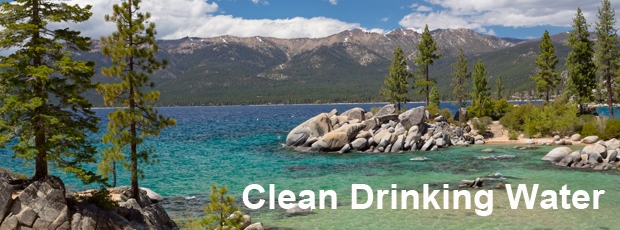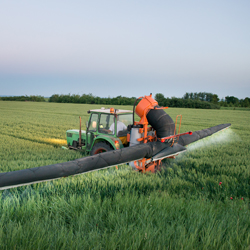Temporarily Tapped Out: More Time to Consider California’s Clean Water Funding Bill
How deep does the clean water issue go in California? Let’s first take a look at some fairly recent and comprehensive findings:
There was good news and bad news regarding the cleanliness of California’s drinking water, according to a U.S. Geological Survey (USGS) study released in 2015.

The research comprised part of California’s Groundwater Ambient Monitoring and Assessment Program, more commonly called GAMA. It included 10 years’ worth of test data from untreated water in 11,000 wells across the state. GAMA considered area population and development to weight findings from the well tests.
First the good news: Contamination from nitrates, solvents, pesticides, etc. occurred in high concentrations in only five percent of California’s groundwater resources. The bad news was that naturally occurring contaminants like arsenic or uranium were found in about 20 percent of the state’s groundwater resources.
So what should be done about water contaminants?
According to the USGS, local and regional agencies are responsible for cleaning up the problem of high contaminant levels, particularly in high population areas like the San Fernando and San Gabriel valleys near Los Angeles. And the State Water Resources Control Board regulates safety under several state clean water laws, including the California Safe Drinking Water Act and the Porter-Cologne Water Quality Control Act.
But for some lawmakers, that may not be enough.
Temporarily Diverted: Clean Water Tax
Senate Bill 623, introduced by Senator Bill Monning (D-San Luis Obispo, Monterey and Santa Cruz), would impose the first-ever consumer tax on drinking water.
The bill would levy a 95 cent per month tax on water meters “up to one inch or customers without water meters” (see Article 5 of SB 623). The tax would increase, depending on the size of the water meter at issue, to as much as $10 per month for customers with water meters greater than four inches.
There would be exemptions from the tax for low-income customers, e.g. if the customer’s household income equals or is less than 200 percent of the federal poverty level, or if the water meter exclusively measures flow of non-potable/recycled water.
The taxes, estimated at $110 – 140M per year, will be diverted to a Safe and Affordable Drinking Water Fund to clean up our drinking water sources.
But there are an interesting mix of groups and individuals both for and against the bill. As a result of the controversy, SB 623 is now on a two year track and won’t be decided until 2018, which gives us all time to contemplate.
Strange Water Bed Fellows

According to the Visalia Times-Delta, more than one million California residents live in communities with unsafe drinking water because of 300 state water systems that don’t meet federal criteria.
Many of the communities with bad water are in the middle of the state – the breadbasket of California, where agriculture is the main industry. Perhaps that’s why the farming industry is teaming up with environmentalists to support this clean water bill.
A spokesperson for the Western Growers’ Association released this statement regarding the clean water fund:
The use of organic and commercial fertilizers are necessary to replenish soil nutrients to allow for crop production. We believe it is in the best interests of the people of the state of California to have a safe and secure food supply grown in California for the benefit of people everywhere. . . SB 623 strikes the needed balance between providing the necessary resources for addressing critical drinking water needs, while protecting agriculture from certain nitrate related enforcement actions in the short-term.
The Association of California Water Agencies, however, opposes SB 623 because the bill turns hundreds of water agencies into tax collectors, opens the door to more taxes on water in the future, and thus hinders the affordability of water, which is fundamental to life.
The Association thinks California’s General Fund and the income from the Safe Drinking Water State Revolving Fund should pay for cleaning up drinking water.
And not all environmental groups are on board with SB 623, as some contend the bill gives the agricultural industry a “pay to pollute” pass, as the bill would allow farmers to enroll in a waiver program by paying an applicable fee, potentially protecting them from environmental enforcement actions.
So one question that must be answered between now and a legislative vote in 2018: How best can we protect both our food and our drinking water suppliers? Will SB 623 take care of one challenge without sacrificing the other?
Stephen T. Holzer is a Business Litigation Attorney and the Chair of our Environmental Practice Group.
